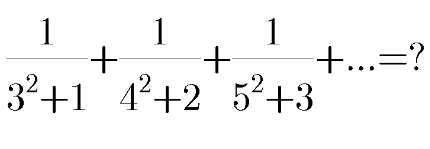
AllQuestion and Answers: Page 1192
Question Number 98130 Answers: 0 Comments: 0

Question Number 98119 Answers: 0 Comments: 1
Question Number 98118 Answers: 1 Comments: 0
Question Number 98116 Answers: 0 Comments: 0
Question Number 98114 Answers: 1 Comments: 0
Question Number 98112 Answers: 1 Comments: 0
Question Number 98106 Answers: 2 Comments: 0
$$\mathrm{y}''+\mathrm{y}\:=\:\mathrm{cos}\:\mathrm{3x}−\mathrm{2sin}\:\mathrm{3x} \\ $$
Question Number 98105 Answers: 2 Comments: 0
Question Number 98104 Answers: 5 Comments: 1
Question Number 98098 Answers: 3 Comments: 0
Question Number 98096 Answers: 1 Comments: 0

Question Number 98091 Answers: 1 Comments: 0
Question Number 98087 Answers: 1 Comments: 0

Question Number 98077 Answers: 0 Comments: 4

Question Number 98073 Answers: 1 Comments: 2
$$\mathrm{solve}\:\sqrt{\mathrm{6}−\mathrm{x}}\:=\:\mathrm{6}−\mathrm{x}^{\mathrm{2}} \\ $$
Question Number 98067 Answers: 2 Comments: 0

Question Number 98060 Answers: 1 Comments: 0
Question Number 98058 Answers: 1 Comments: 0
Question Number 98057 Answers: 2 Comments: 0
Question Number 98056 Answers: 0 Comments: 3
Question Number 98039 Answers: 1 Comments: 0
Question Number 98035 Answers: 0 Comments: 4

Question Number 98030 Answers: 0 Comments: 1

Question Number 98027 Answers: 0 Comments: 1
Question Number 98022 Answers: 1 Comments: 0
Question Number 98020 Answers: 1 Comments: 0
Pg 1187 Pg 1188 Pg 1189 Pg 1190 Pg 1191 Pg 1192 Pg 1193 Pg 1194 Pg 1195 Pg 1196
